I can’t believe how easy this DIY solar fountain is to create! With all the beautiful pond and water plants, and the sweet bubbling sound of water, it makes us feel that we are sitting by a little creek in the mountains.
Everyone loves garden fountains and patio ponds. But they usually require lots of work to set up plumbing, electrical, etc. Made from an old galvanized tub and a simple solar fountain pump, this outdoor solar fountain ( birds love it too like a birdbath! ) is so easy to build and maintain. Enjoy it all year round, or in colder climates, move it easily to a protected location when the temperature drops below freezing.
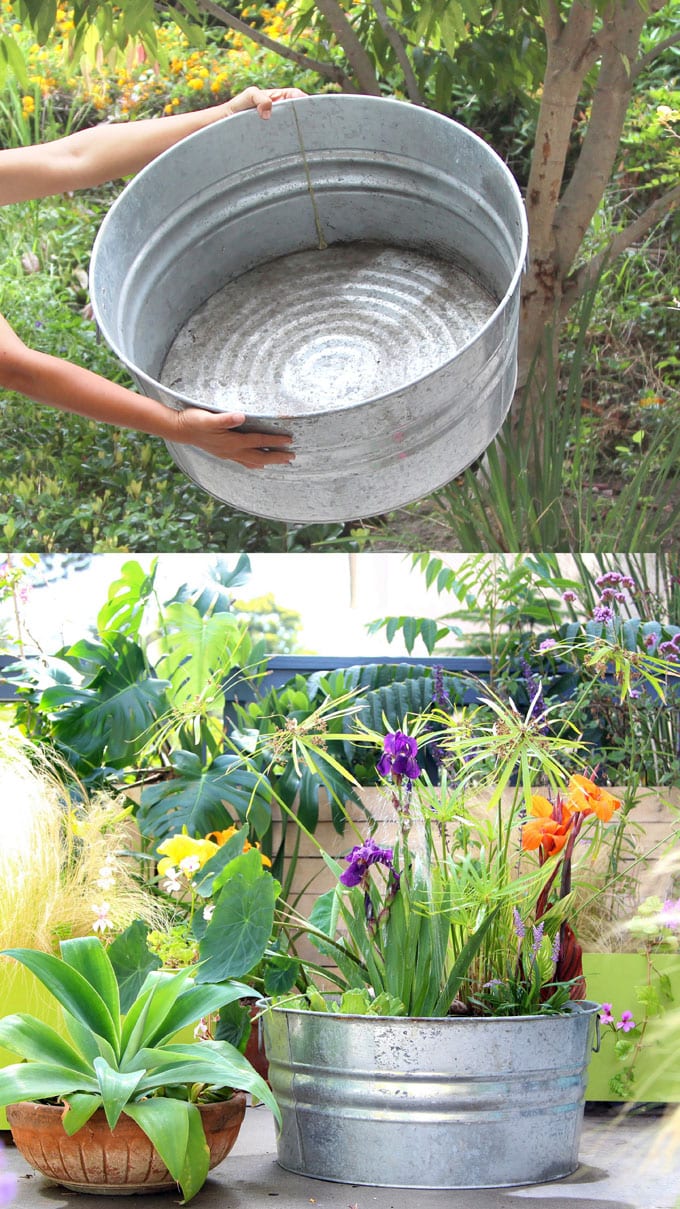
So excited to share with you today how to create a simple solar fountain easily with or without water plants!
Don’t miss the Helpful Tips section at the end on choosing vessels, solar pumps, optional aquatic plants or fish, and how to keep your solar fountain water clean and free of mosquitoes.
Video tutorial below: Easy DIY outdoor solar fountain!
Materials needed to make an outdoor solar fountain or bird bath:
( Some of the helpful resources are affiliate links. Full disclosure here. )
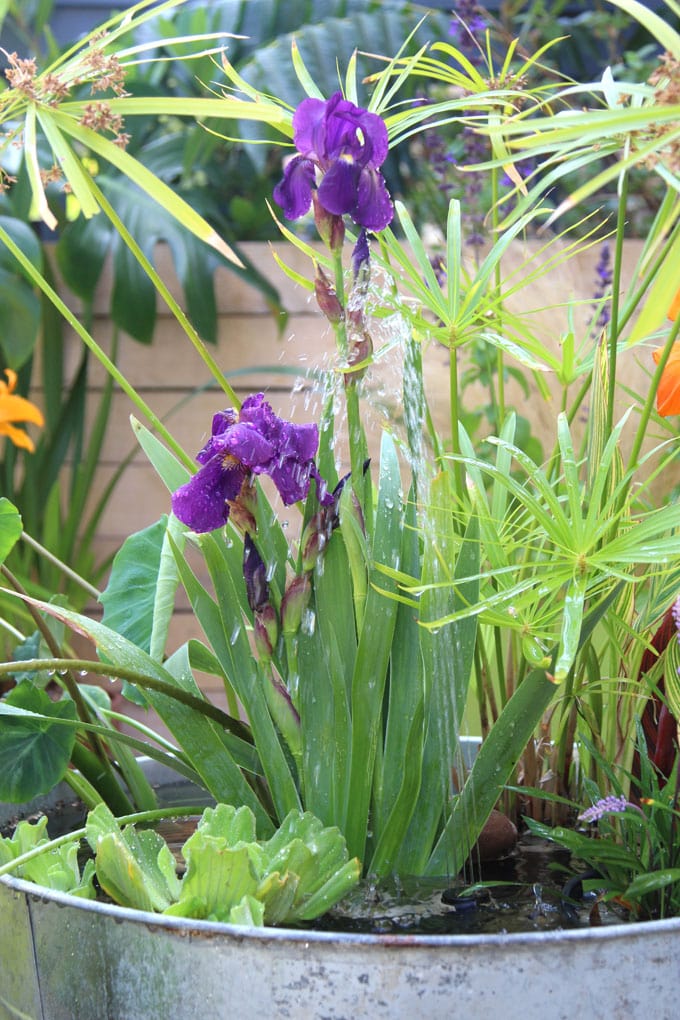
- a vessel: we used a Behrens 15 Gallon Round Steel Tub, which measures 25″ diameter by 12″ tall.
- solar fountain pump: we used this 1.5w solar pump, here’s another one that is similar. They both have a 10 feet cord from the pump to the solar panel so you can have the solar fountain or birdbath in sun or shade as long as the panel is in the sun.

Step 1: start with water and plants
After selecting the location for your outdoor solar fountain or bird bath, it’s time to add water and aquatic plants. Pond and water plants are optional, but we added them because they are so beautiful. Plant roots also help keeping the water clean and free from algae.

Fill the tub halfway with water. You can add more water after all the plants are placed inside the tub.
In the Helpful Tips section at the end, I will share more about what type of soil or pots to use for pond and water plants. In short, use plastic nursery pots, and avoid rich potting soil. We also topped the pots with some rocks which looks pretty and prevents anything floating up through the soil.
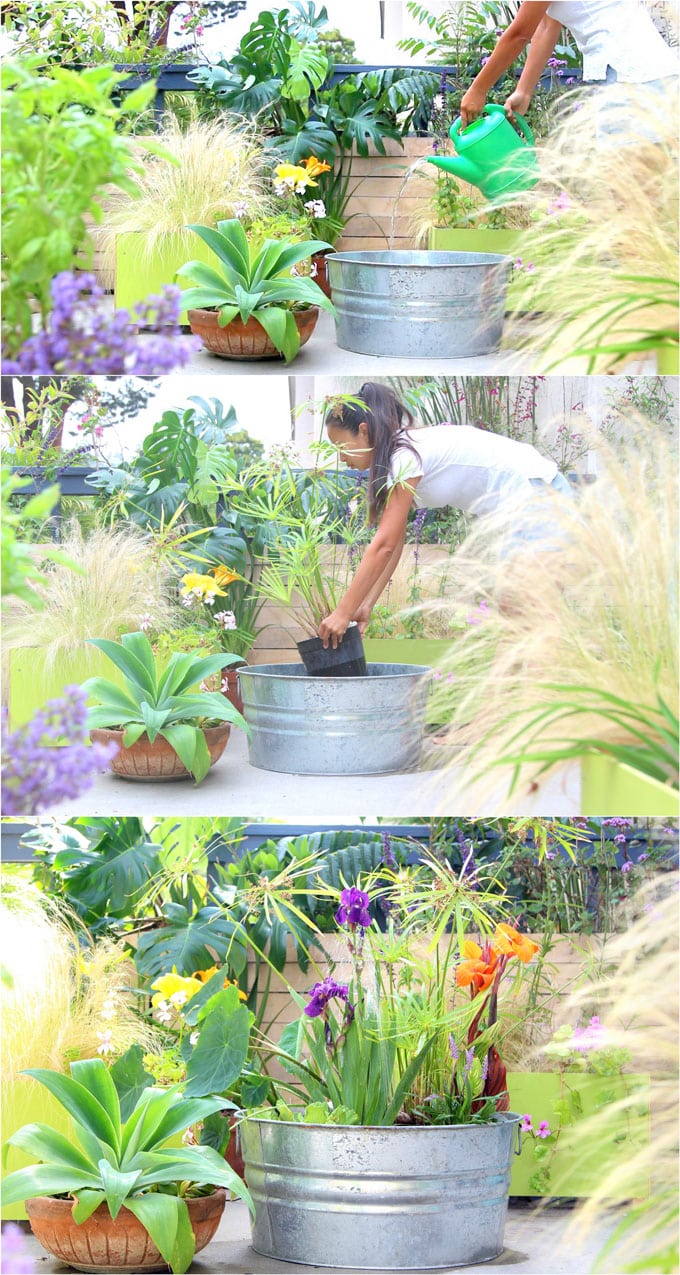
There are many beautiful and easy to find water garden plants. Here we used Cyperus involucratus “Baby Tut”, Taro, Canna Lily, Siberian Iris, and Loriope. These are emergent type water plants.
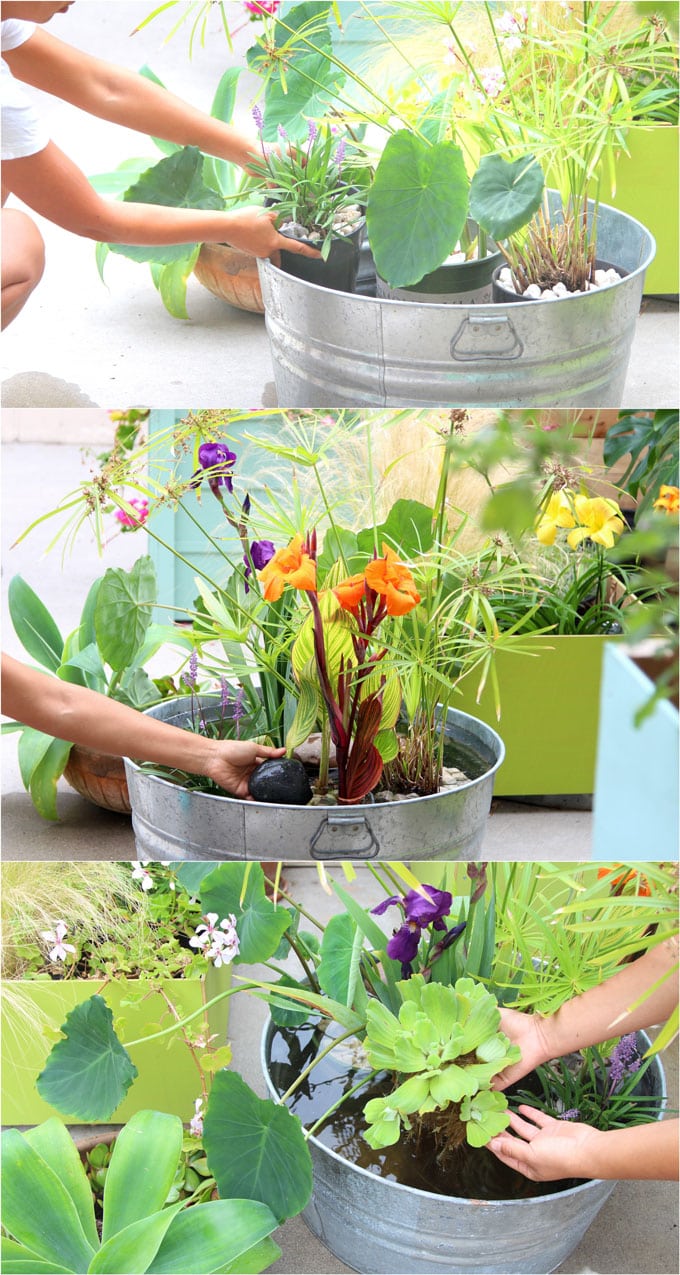
We also added water lettuce, which is a floating type water garden plant. Its massive root can clean the water really effectively. We can stop at this point with our lovely mini patio pond! However, the sound of water is just too irresistible…
You may also love: 30+ colorful shade plant pots with designer planting list for each!
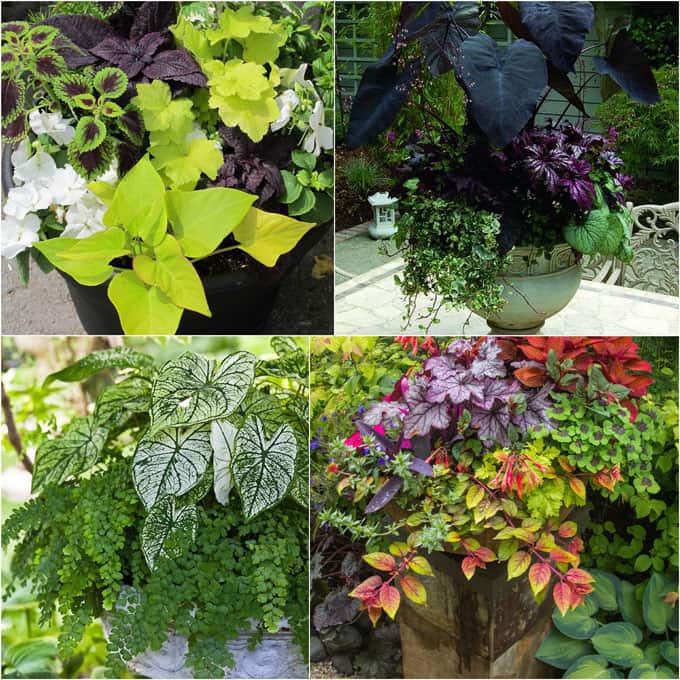
30+ colorful shade plant pots with planting list for each!
Step 2: Add solar fountain pump.
This 1.5w solar pump (here is another one that is similar ) has a 10 feet cord from the pump to the solar panel so you can place the panel in the sun but out of sight!

This pump does not store solar energy, which means the fountain will be off when the sun is not shinning on the solar panel.
Helpful Tips and FAQs
Solar fountain pump choices and considerations.
When creating an outdoor solar fountain, pay attention to water splash radius, which will affect where you place the fountain and other furniture and decor items.
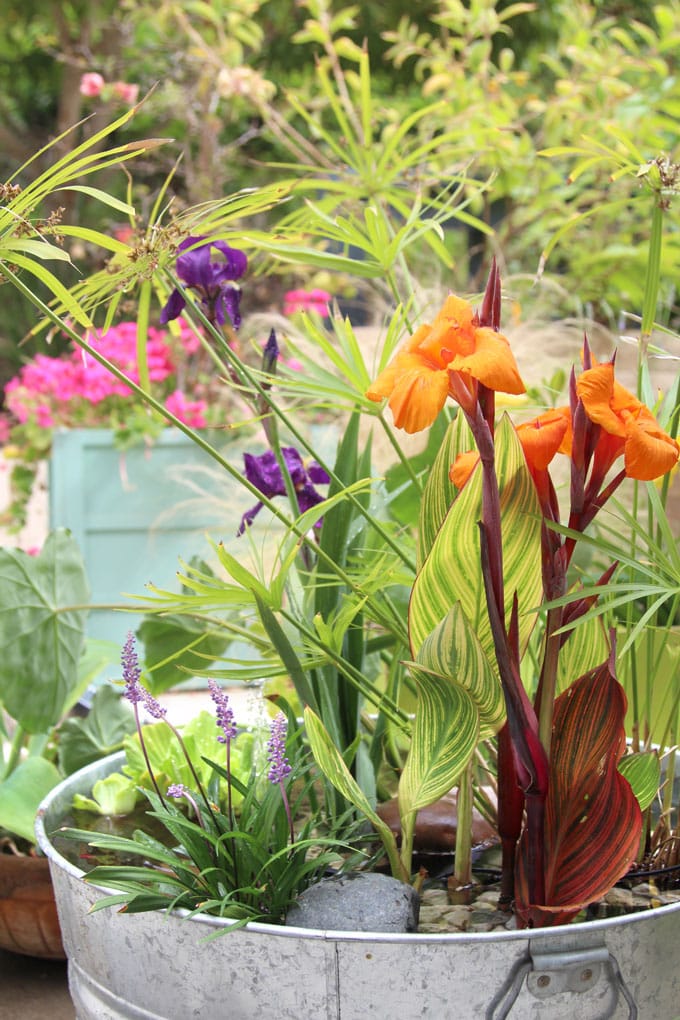
IMPORTANT: always keep the pump submerged in water when its running. When making adjustments, face the panel away from the sun until you can keep the pump submerged in water. Otherwise the pump could burn out.This applies to both the solar pump we are using and the floating type solar pumps like these.
Solar fountain vessel choices and considerations.
In addition to galvanized steel tubs, you can also use a half barrel or any containers that hold at least 3″ deep (see solar pump) water and are designed for outdoor use. This vessel depth will accommodate most small pumps.
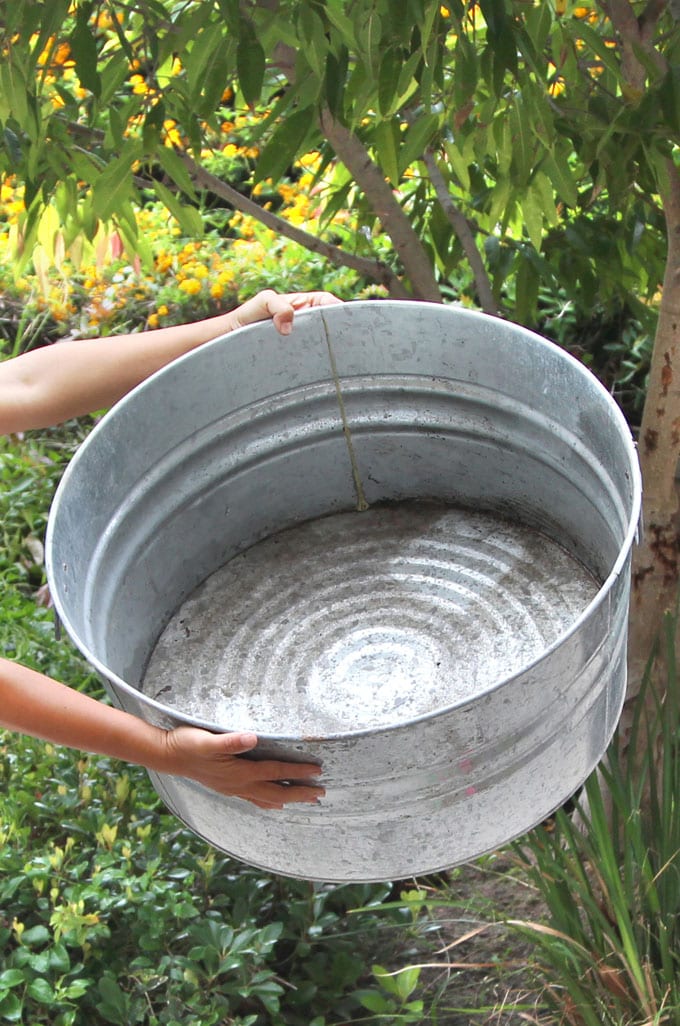
How to keep your solar fountain water clean and free of mosquitoes.
Algae grows where there’s lots of sun or nutrients in water. Place the fountain in shade, or use plants to shade the water. Plant roots will also use up nutrients. I will write more about water and aquatic plants in another post to give you all the details and variations!
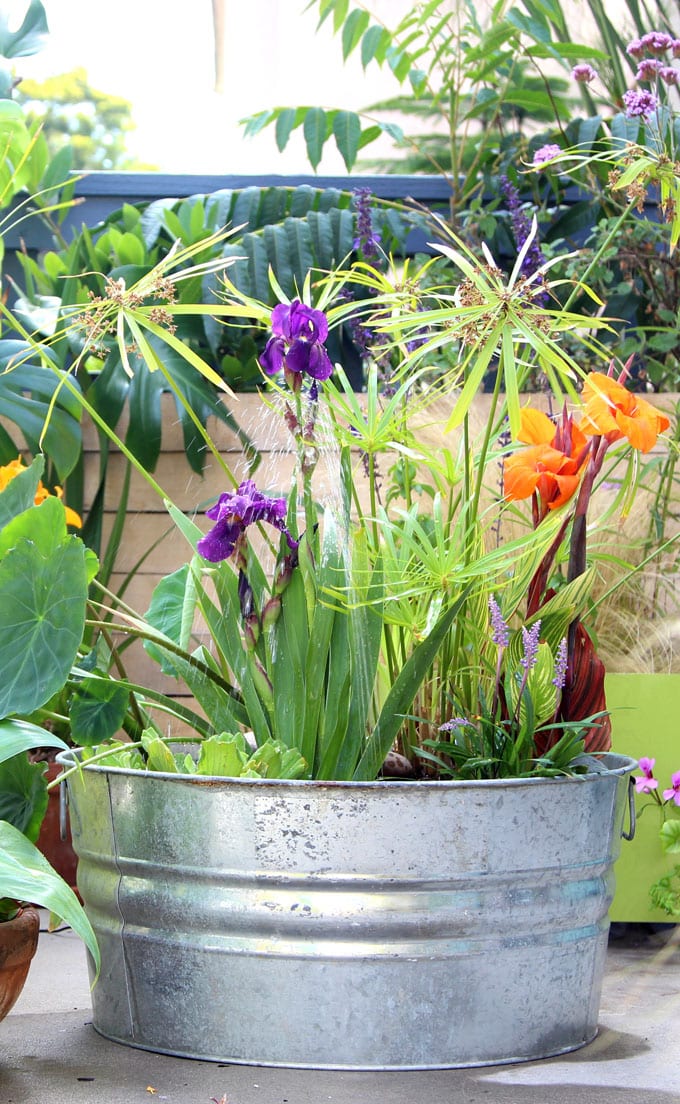
Mosquito larvae can only survive in stagnant water. If the fountain is running often, it will deter mosquitoes. You can also introduce small fish, such as goldfish or mosquito fish, into your fountain to feed on any new mosquito larvae and remove algae as it forms.
If you choose to have plants, here are some soil choices for pond and water garden plants: clay soil is best. Garden soil is fine too. Potting soil contains wood chips and perlite which may float on the water. Avoid rich soil with manure content, as they could cause the water to smell, or become too acidic.
By the way, those lovely planter boxes you see in the background are so easy to make! Here’s the DIY planter boxes tutorial!
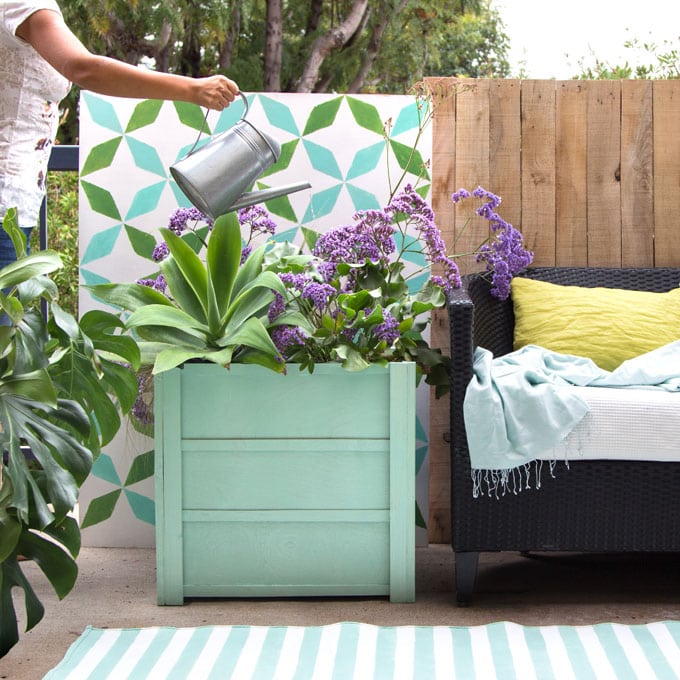
If you want to get started but are not ready yet for a large fountain, here’s a super fun and simple tutorial on growing plants in water indoors:
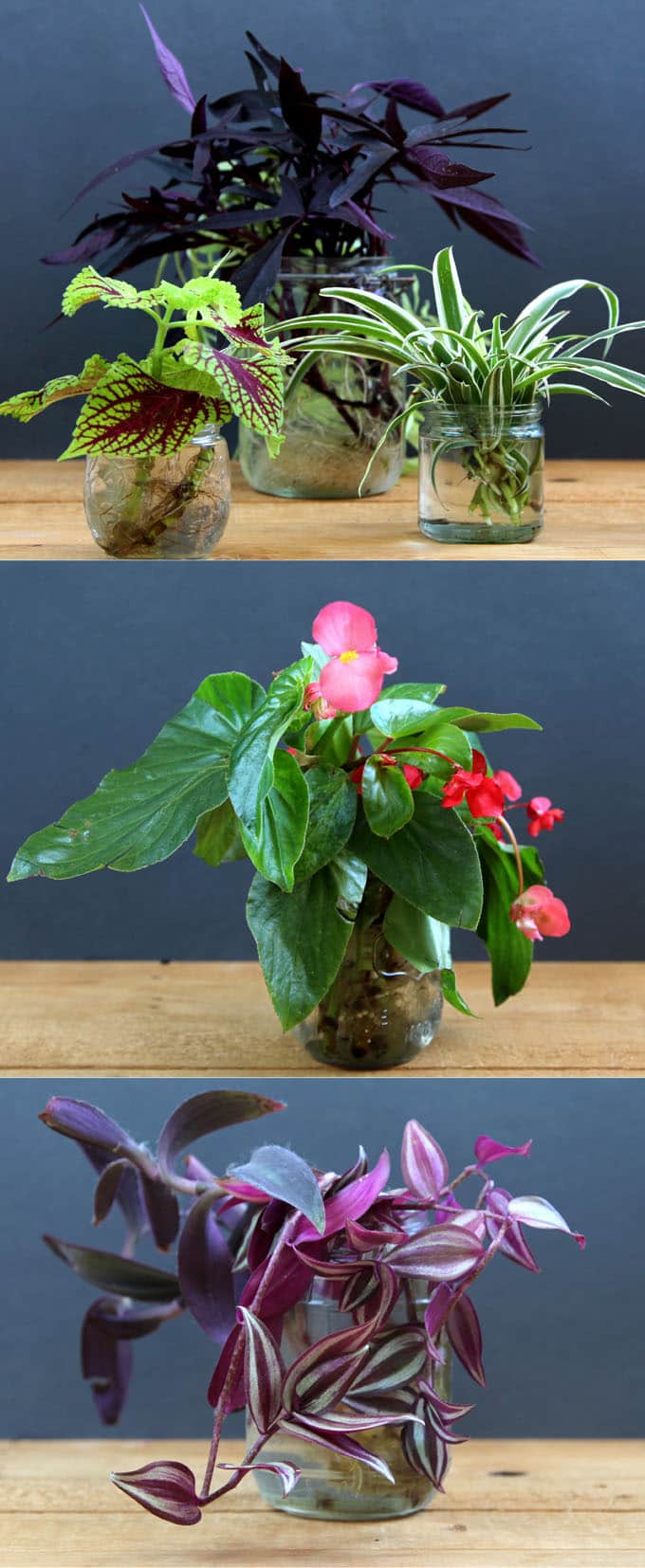
How to grow plants easily in water indoors!
Happy creating! See you next week!
Source: apieceofrainbow.com
